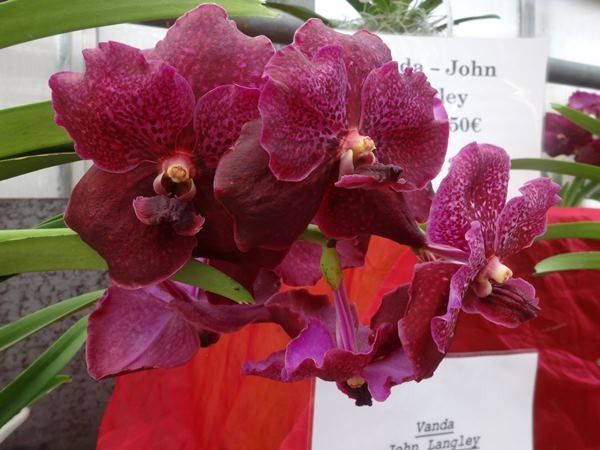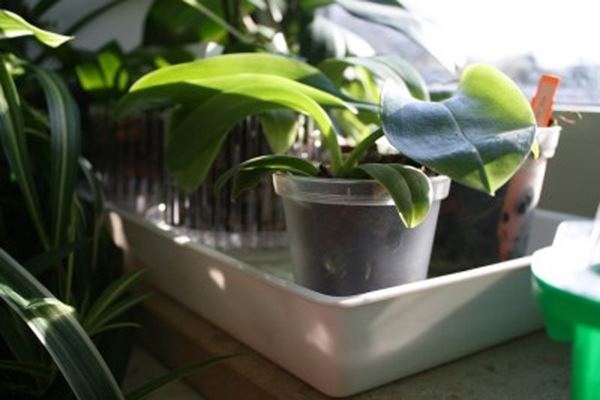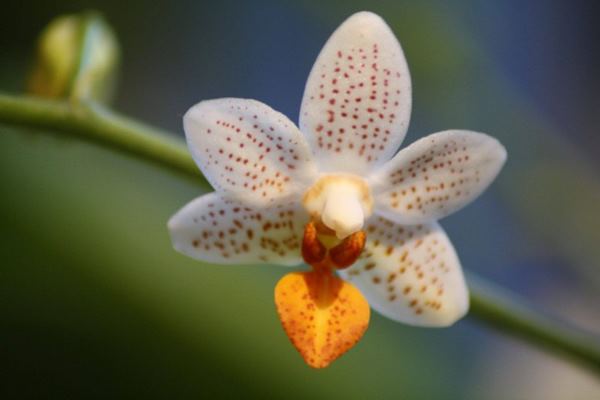Summer is here! And just in time between the meteorological and the calendrical beginning of summer, I have some tips for you on the subject of care for orchids in the summer. So let’s get down to business, so that your orchids can survive the summer months of June, July and August.
Contents
Orchids in summer need fresh air
The most important thing for orchids in summer is fresh air. Because the sun has real power at this time of year and heats up the rooms of the apartments really nice. Especially rooms flooded with light – because they have lots of windows – can quickly overheat and become much too warm for the orchids.
This is especially true for orchids that like it a bit cooler by themselves. But even orchids that appreciate warmth go on strike at the latest when the room temperature exceeds 28 degrees and refuse further growth.
The measures against this are basically quite simple and also not wrong for the people who are in the same room.
In the cooler morning and evening hours, or even at night, open the windows and let fresh air in. If it does not cool down properly at night, the window can also remain open for a longer period of time.

Close all the bulkheads
Another measure to keep the heat out of the rooms is to close all the bulkheads during the day. However, this has the disadvantage that the orchids do not receive light. On extremely hot days, this measure can still be taken, because no orchid will perish from a darker day.
Another option is to move the suitable orchids to a shady place outdoors, that is, in the garden or on the balcony. Here, care should be taken to either have the plants standing or hanging in such a protected place that nothing can happen to them during heavy rains and thunderstorms, or to bring them back indoors beforehand.
Orchid genera that are suitable for an outdoor stay include Vanda, Cymbidium, Cattleya, Stanhopea and Oncidium. Important: Be sure to check all plants thoroughly for pest infestations before bringing them inside in the fall!
Orchids in summer need shade
Another point that is important all year round, but can quickly have fatal consequences if ignored, especially in midsummer, is the shading of orchid windows. This is because orchids, with few exceptions, should never be exposed to the blazing sun for any length of time. Especially not the midday sun in summer.
In summer, effects such as sunburn on orchid leaves can occur very quickly. The spots not only look unsightly, but also lower the leaf’s performance in terms of photosynthesis and are also entry points for pests or pathogens.
The orchid windows should therefore be shaded so that no direct sun reaches the orchids. South-facing windows should be avoided if possible for orchids. If there is no other way, I have already presented some possibilities for shading elsewhere.
Orchids in summer need sufficient water
When it is warm in the summer and the light supply is high, plants are at their best when it comes to metabolism. And in the process, they consume correspondingly more water. So it makes sense to adjust the watering in summer to the demand. Rules of thumb such as “I water my orchids once a week on Sundays” are not recommended, as this can be too little in summer and too much in winter.

It is better to check on the plants whether they need water again or you can wait a few more days with the next dive.
I recommend here the method of slightly lifting the pot in which the orchid sits. If this is quite light and – in the case of transparent pots – no more condensed water can be seen at the rim of the pot, watering can be done. Otherwise, wait and repeat the test a few days later.
In general, one rule of thumb cannot be repeated often enough for most orchid species: you are more likely to kill orchids with too much water than with too little. So, if in doubt, it’s better to wait a few days before watering than to overdo it and risk rotting the roots.
Orchids in summer need a supply of nutrients
In addition to the consumption of water, the consumption of nutrients also increases in the summer. This is because the plant builds up new leaf and root tissue, and it is here that those very nutrients are needed. Since these nutrients are not supplied by the plant itself, as they are in nature, a remedy must be found.
And this can be done with orchid fertilizer, which is now available in every garden center and even in supermarkets. Orchid fertilizer is much lower dosed compared to fertilizer for other plants, because most orchids do not tolerate too high salt concentrations. In summer, you can add the amount of fertilizer recommended on the packaging or a little less to the dipping water at each dipping.
Under no circumstances should you overdose the fertilizer. What is well-intentioned can quickly turn into the opposite and cause lasting damage to the plant. Because also with the orchid fertilizing the principle applies: Less is more.
By the way, only a few orchid genera have their main flowering period in the summer months. So it makes perfect sense to use a fertilizer in the summer that primarily promotes root and leaf growth. Appropriate fertilizers for orchids are available in specialized shops. In the fall, you can then switch back to fertilizer to support flower formation.


